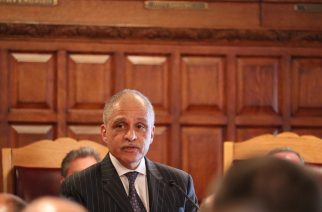
Senator Brad Hoylman and Assemblywoman Deborah Glick introduced legislation Tuesday that would require at least one member of the New York State Liquor Authority appointed by the governor to be a resident of New York City.
The SLA, which consists of three governor-appointed commissioners, is responsible for regulating the manufacture and distribution of alcoholic beverages throughout the entire state.
While more than half of the state’s 3,147 approved on-premises license applications in 2015 originating in New York City, there are no laws ensuring that the 8.5 million residents of New York City are represented on the Board, say Glick and Hoylman, both Manhattan Democrats.
Their bill would change this by amending the Alcoholic Beverage Control Law to ensure representation that is more “equitable.”
“New York City is responsible for more than half of all the approved alcohol licenses granted across our state,” Hoylman said. “Given the overwhelming complexities of granting alcohol licenses in a way that meets the needs of establishments as well as the kaleidoscopic interests of five boroughs, 59 community districts, and hundreds of neighborhoods, New Yorkers deserve a seat at the table when these important decisions are being made.”
In November, Hoylman sent a letter to the governor requesting that he use his appointing authority to nominate a New York City resident to fill the vacant commissioner position on the SLA Board, which has relied on just two since the retirement of Commissioner Kevin Kim, a New York City resident, in August.
“The SLA is tasked with a challenging and dynamic role of reviewing applications throughout the state and the realities of the unique conditions of New York City communities are very different than those in other parts of the state,” Glick said. “Many [New York City] neighborhoods have a significantly higher density of licensed premises than anywhere else in the state, and a New York City resident on the SLA would help inform the regulations … within the city so we can continue to promote livable communities.”









